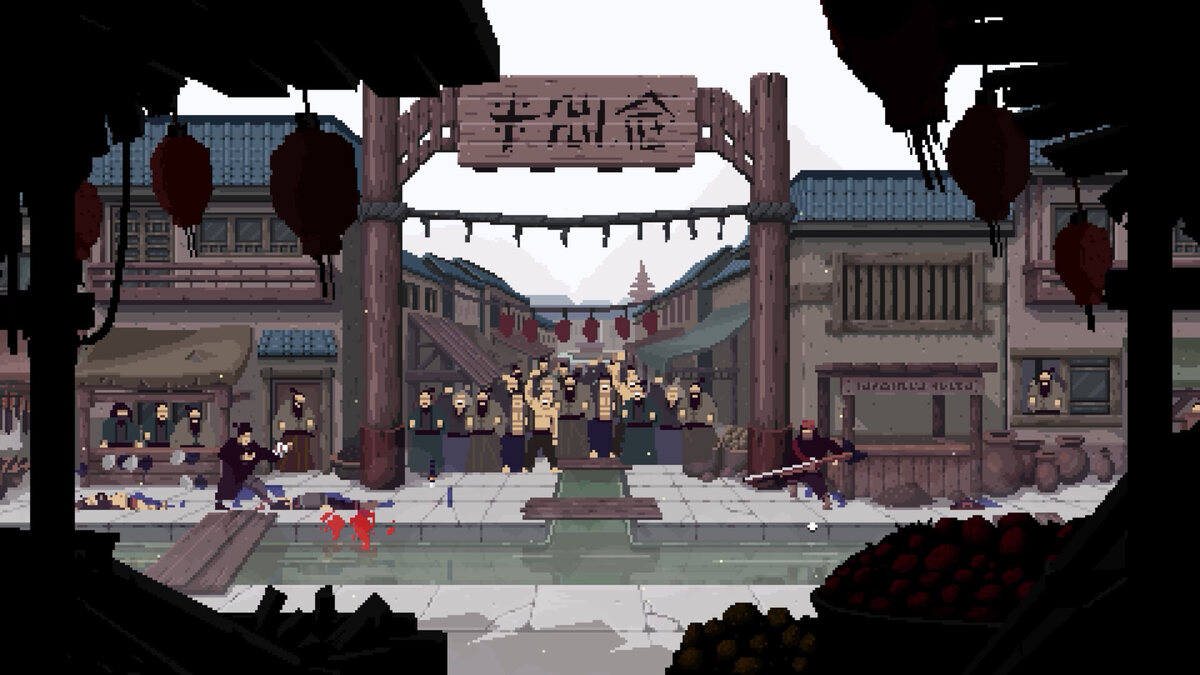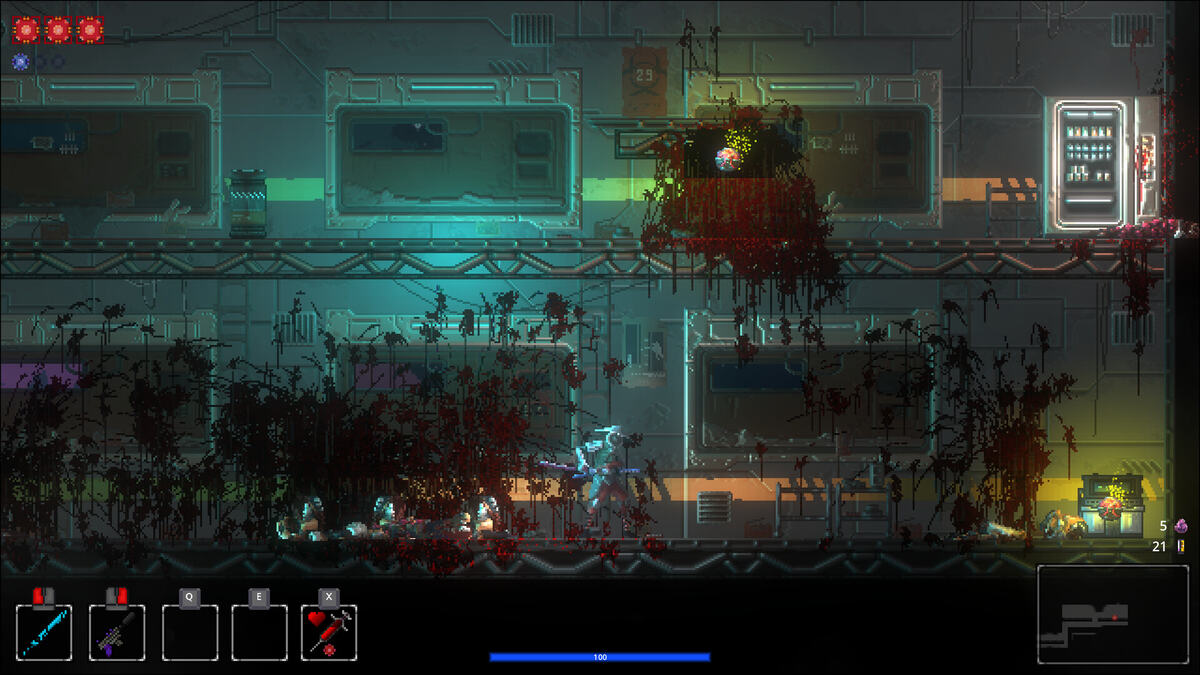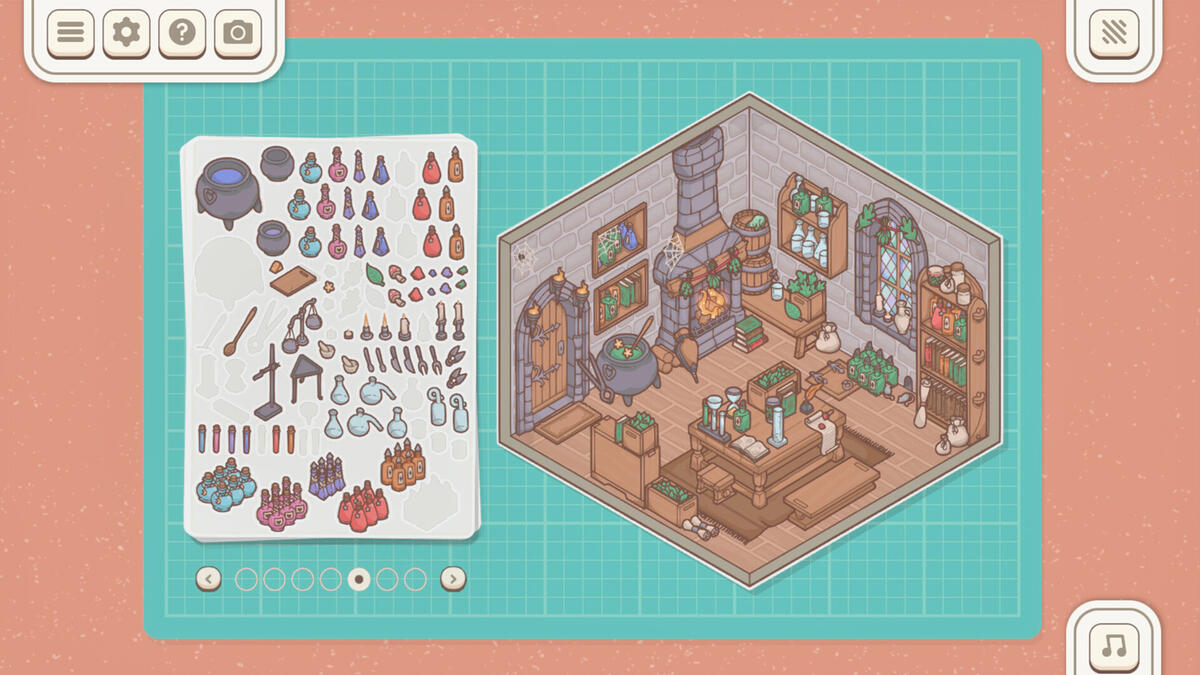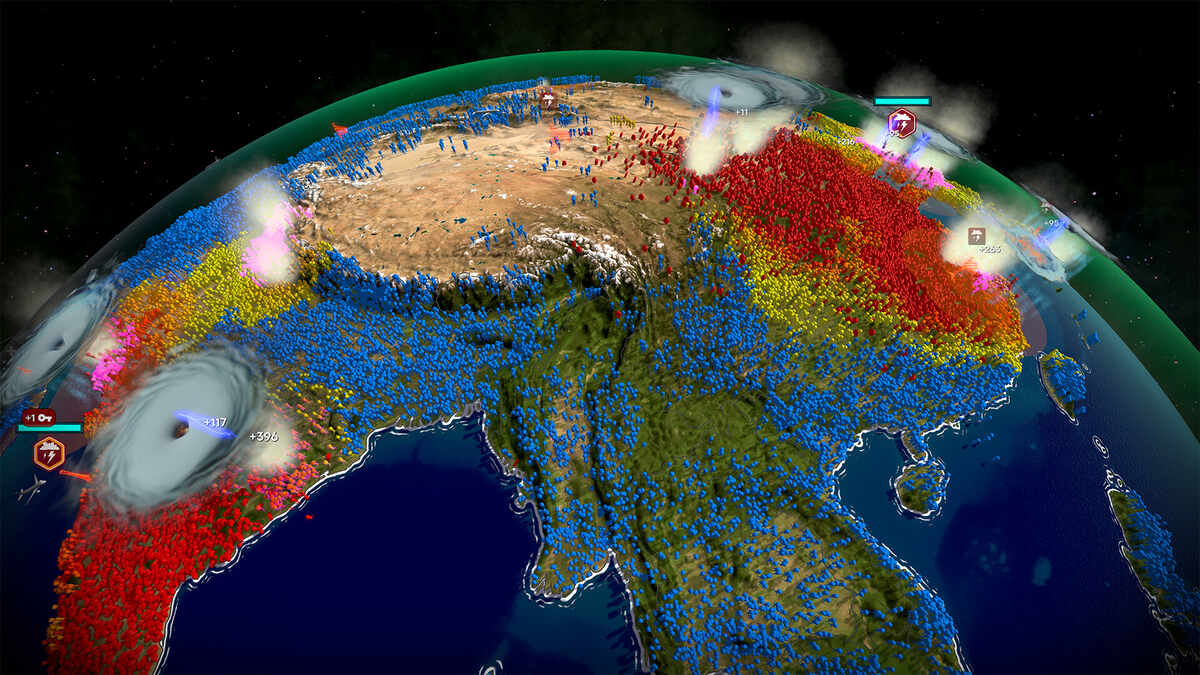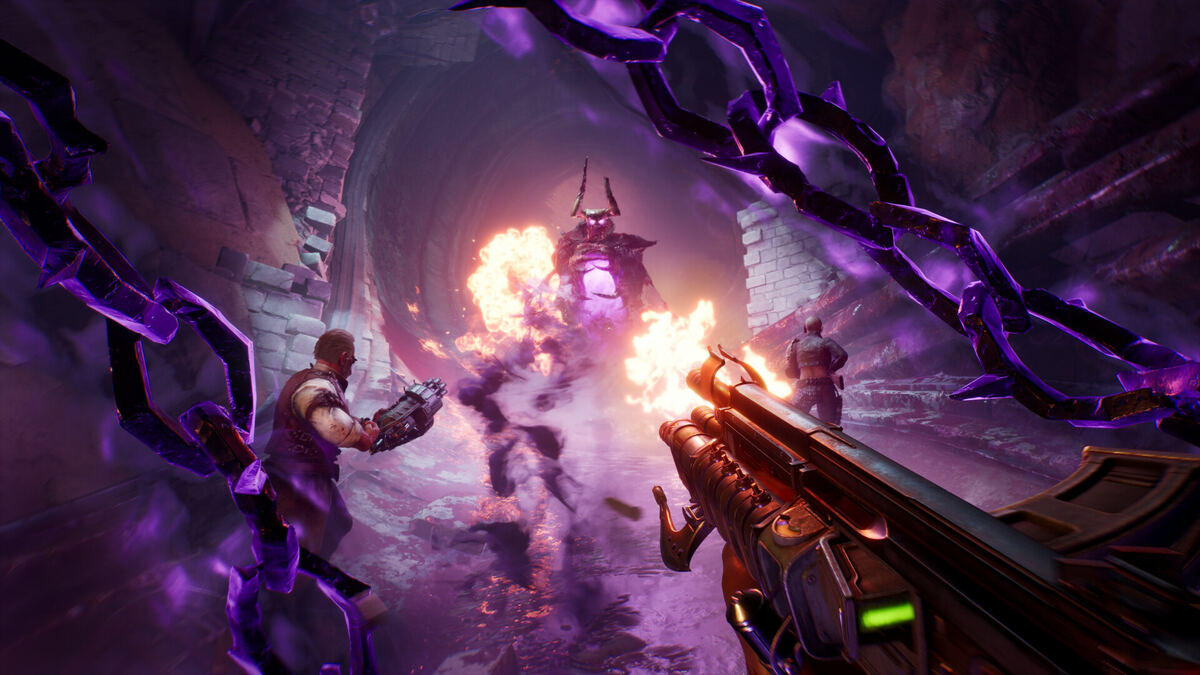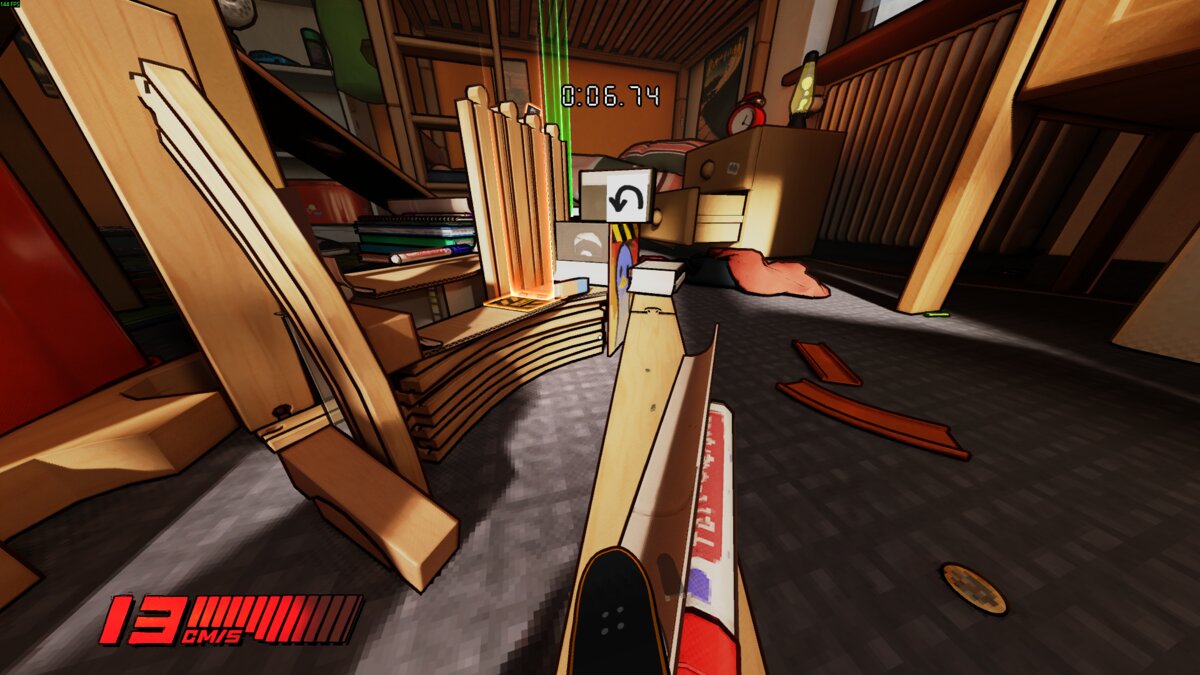You can trust VideoGamer. Our team of gaming experts spend hours testing and reviewing the latest games, to ensure you're reading the most comprehensive guide possible. Rest assured, all imagery and advice is unique and original. Check out how we test and review games here
Some people refuse to like Visceral Game’s Dante’s Inferno. Why? Because it’s based on one of the greatest works of world literature: The Divine Comedy. For critics, it’s an abomination; a shameless exploitation of a 700-year-old Christian classic. But for others, it’s just a promising third-person action game. Here, in an interview with VideoGamer.com, executive producer Jonathan Knight responds with an impassioned defence of the controversial hack ‘n’ slash. Knight reckons Dante’s Inferno’s critics just don’t get it. Read on to find out why.
VideoGamer.com: How are you innovating in the genre? What are you doing that’s never been done before?
Jonathan Knight: The number one thing we’re doing has to do with the story and the mythology. No-one has tackled the medieval Christian afterlife. What we wanted to do with the game was first and foremost take you into Dante Alighieri’s vision of hell. To do our best job to take a piece of literature that’s well known and, even if you haven’t read it, it’s somehow in your DNA – the nine Circles of Hell, the Divine Comedy – and do our best to adapt that to this medium. That means taking some liberties obviously, with the story and whatnot, and making it more action-oriented than the poem was, but also trying to be literal and true to his vision of the geography of hell and the world he created – the characters, the monsters, the Dante Beatrice story and so forth. A lot of games have borrowed from mythology here and there or dealt in super fantasy worlds, but we’re trying to tell this medieval poem and adapt it for the medium.
In terms of gameplay, we’re pushing a lot of exciting features. The ability to take control of these giant demons – it’s almost like vehicles in hell, if you will, and there’s a lot of that in the game. And the duality of the character, and opening up the upgrades. I don’t want to call it an RPG by any stretch of the imagination, but a lot of games in the genre have been linear in the way you’re allowed to upgrade your character. We try to bust that wide open. There are about 60 different upgrades throughout the game. They’re wide open to you. You choose if you’re going to invest more heavily in magic or in the relics or in your health and mana bars or your cross powers or your sight powers. We just want to give a lot of choice there. The game has a holy path and an unholy path. Some people like to fight with the cross, some like to fight with sight, some like to use magic. What we find with these games is different people play in different ways, and we want to give you that freedom to invest in whatever your play style is.
VideoGamer.com: When the game was announced, I thought the online reaction from gamers was interesting. Did the development team look at it, or did you try to ignore it?
JK: Yeah absolutely. We obviously want people to know about the game and want them to eventually buy it. But the other reason we’re out there all the time, and we were out so early was to get people’s feedback and see what their reaction was going to be. Game development’s highly iterative. I’ve been taking the game to focus tests since it was about six months old and didn’t have any art in it. Great games are made through a continual process of feedback. We’re always reading what people say and testing the game and testing the ideas and folding that feedback into our ongoing development. That doesn’t mean we’re straying from the core vision or anything. Obviously the game’s not going to be for everybody. You can’t make everybody happy. But absolutely, yeah, always reading it and always folding that into our thinking.
VideoGamer.com: Are the critics who are concerned with what you’re doing with the poem missing the point?
JK: I think they are. Generally those critics are often people who weren’t fans of the poem and weren’t that familiar with it until they heard we were doing this. What we’re finding is, a few people anyway, that quite clearly didn’t know it well, now have gone off and read it and they’re looking for ways to go, oh you’re taking liberties here, or you didn’t do this, or whatever. But the reality is that true Dante fans, people who actually have spent time with the literature and care about it are over the moon with the game project. I’ll cite a couple of examples. We’ve got a rare bookseller we work with. She has a collection of Dante books going back to the early 1800s, rare editions. There’s some cool stuff from the early twentieth century. Literally, there’s a Disney comic book with Mickey and Goofey as Dante and Virgil. There are trading cards, postcards, tourist items. People in England would go to Italy and come back with these tourist posters based on The Divine Comedy – this is the beginning of the twentieth century. She’s got an amazing collection. She used to teach Dante as a schoolteacher. She’s just super excited about the project. I added somebody on Facebook the other day, who said his Oxford professor told him about the video game and that’s how he found out about it, even though he’s a kid. I’ve had other schoolteachers reach out to me and even thank us for doing it.
I like to say the game is a celebration of Dante. There are more people going to actually read the poem, learn about The Divine Comedy, read up on Dante and what he meant to western culture, than otherwise would have. That’s a good thing. The game’s not meant to replace the poem. It’s not meant to be like, hey, play the game and you don’t have to read the poem. The cool thing is the opposite is happening. More people are reading it, not less, because of the game.
VideoGamer.com: Is there confusion about the text itself? Do some think it’s a religious historical account like The Bible?
JK: There might be. If there is that confusion it’s simply from not knowing the facts about it. It’s always been a work of fiction, for seven hundred years. There’s never been any legitimate or official position from anyone otherwise. The Catholic Church has always regarded it as a work of fiction from day one. And it is. It’s a fantasy. It’s basically Chronicles of Narnia or Lord of the Rings. It does hit a little closer to religion, in the sense that it is a medieval Christian mythology. But if you read it, it’s a mishmash of ancient mythologies, with Christian mythologies, with Catholicism, with Italian folklore. It’s also highly political. Dante was casting a bunch of his political enemies into hell, and then meeting there and talking to them. So there’s a lot of contemporary politics involved. It’s an incredible mishmash. But the one thing it definitely is, is fantasy. That’s without question. If people throughout the centuries came to believe in Dante’s vision of hell, it’s equivalent to people believing in Middle Earth. I’m not saying you shouldn’t believe in heaven or hell. It’s just that his particular vision of it is quite clearly a crazy fantasy. That’s what we focus on for the game.
When we announced the project in Florence at the beginning of the year we came over to Europe. We definitely gave a lot of the first looks of things to Europe, because it’s a little bit more of a European darling, frankly. So we came to Florence. I did a little Power Point. I said, hey, here’s the Nine Circles of Hell, here’s the importance of this book and the Dante Beatrice story, which is an amazing story – not just the fictional story but their real life story. And then we tried to theme the marketing campaign around the Nine Circles of Hell and make people see that’s how Dante ordered hell, that’s how he structured it, and it is a big fantasy. Maybe we haven’t done a good enough job of explaining all that but that’s the approach we took.
VideoGamer.com: Moving away from the source material to the game, is it unfair to compare Dante’s Inferno to God of War?
JK: It’s not unfair. It’s flattering and humbling, honestly. We set out to make a great game. We didn’t want to make anything less than a great game. For me, a great game is, at its core, is great controls. We know that’s hard to do. We play everything.
VideoGamer.com: Have you played the God of War III demo?
JK: Yeah, absolutely. I played it at E3 and a couple of other events. But we started out saying, let’s do a fast-paced, responsive combat system. There are a lot of games in the genre. We could be compared to a lot of other games that I would be less flattered, because I feel like their controls might be a little sluggish.
VideoGamer.com: Care to name any names?
JK: No I’m not going to name any names. What do I want to say? It’s a big genre. It’s a proud genre. It’s been going on a long time and it’ll continue to go on. Visceral Games, in its previous incarnation, made Return of the King. A lot of the subsequent action adventures borrowed from Return of the King. I’ve got people on my team who worked on Return of the King. We’re continuing that tradition forward. What we wanted to make was fast-paced, responsive controls at 60fps. We wanted a dual weapon character, which is a little more like Devil May Cry, frankly, than God of War. We share more with Devil May Cry than God of War, so it’s a little weird that we got that so much.
VideoGamer.com: Is that just because God of War is big at the moment, whereas Devil May Cry isn’t in vogue?
JK: It’s probably because we’re dealing with past mythology, and Devil May Cry took more of a contemporary vision. It took some ideas from The Divine Comedy and some other games and mashed it up in a Japanese contemporary thing with guns and swords. On the surface of it, our game, because it’s 700 years old, and I guess God of War is a couple thousand years old… I don’t know, I guess because it’s the past, the surface of it may remind people more.
In terms of gameplay it borrows from a lot of things. What we’re trying to do at Visceral to move things forward is more about that choice and that open-ended system. Like the relics you can equip – those are going to be things people get into. A little bit more customisation. It’s not like you’re decking out your character like an RPG, but you are going to be able to customise his abilities. That’s something we focused on.
VideoGamer.com: Dante’s Inferno will run at 60fps. Insomniac Games recently said it’s unlikely to make a 60fps game in the future because it feels it’s not important any more. What’s your take on that?
JK:Yeah I read that. Obviously I don’t want to question those guys because they’ve been quite successful. One thing that article didn’t quite land on that we’re finding for our game anyway, and every game’s different, is that, they’re basically making the argument that people care more about graphics than framerate. But I can’t decouple the two. For our game, we’re getting high marks for graphics. People come up and they look at the game and they play the game and they’re like, wow, this game is beautiful. It looks great. A lot of what they’re responding to is the framerate, because it is so smooth and it’s so engaging and it’s mesmerising because of the smoothness of it. Obviously because it’s fast-paced, you want a framerate that keeps up with the pace of gameplay. You never want to be going, I tried to pull off that move but somehow the rendering felt it was lagging behind my controls. That’s why we strove for 60 and hit 60, because we wanted the screen to be as responsive as the controls. The effect has been our graphics are better because of the framerate. So in that sense they’re hard to decouple.
I do agree that in reviews and in customer satisfaction, graphics are a big deal, as they should be. People spend a lot of money on games and consoles. They want to show off the power of their machine. But 60fps does just that. And you don’t have to compromise. You can have great graphics and 60 frames.
VideoGamer.com: Is it the case that most gamers pick up on the 60fps on a subconscious level, without realising why what they’re looking at looks so good?
JK: Yeah. Consumers absolutely pick up on it. They just don’t quite know how to talk about it. In the way that physics… We’ll often get… You know we’ve got the Cleopatra and the breasts and so sometimes people say, wow, you’ve got great breast physics. In that particular case, not that we don’t have good physics – we do – that’s an animator hand animating those breasts to get them to look just right. I use that as an example of, maybe people don’t know exactly the right technical way to talk about something but they appreciate the result. With framerate, people absolutely appreciate the results of it, and they don’t quite know why it looks so good, or why it looks so crisp, but they do appreciate and value it.
VideoGamer.com: What will happen after the game is released? Will you support it after launch with DLC?
JK: We’re definitely going to support the game after launch. I can’t get into any specifics right now. We’re still focused on finishing the base game. There isn’t anything up and running with regards to post-release. So even if I could talk about it, there isn’t a lot to talk about, that I’d be willing to commit to anyway. It’s a big universe. I have all kinds of ideas about what we can and what I hope we will do. I just can’t give you any specifics right now.
VideoGamer.com: Would you like to do a sequel? Does Dante’s Inferno have the scope to be a franchise?
JK : It does, and I would personally like to. But that’s Jonathan talking here. That’s not EA talking. The reality is we’re putting everything we have into this game. We don’t want to count our chickens before they hatch or take our eye off the ball in any way. We’re finishing strong. There’s a lot more we have to do. We’re putting in a cool challenge mode – a sort of arena mode that unlocks after you finish the game. We’re working on a lot of awesome special features, a bunch of linear content that’s going on the disc, a lot of stuff people who are interested in the literature are going to value, documentaries, and things like that.
VideoGamer.com: Can you talk more about what kind of backstory features you’ll have?
JK: No, just to say we are putting some documentaries on the disc.
VideoGamer.com: Live action documentaries?
JK: Yeah. About the making of the game, the history of the poem, and how the two come together. When people get the disc in their hands, by that time maybe there will be more news about post-release content as we, once the game is finished, start to look toward other things. It’s a big universe. We’re focused on this right now. If it does well and people respond to it, it wouldn’t shock anyone that we would do a sequel. But we’re not thinking about it too hard right now.
Dante’s Inferno is due out on Xbox 360, PS3 and PSP on February 12, 2010.
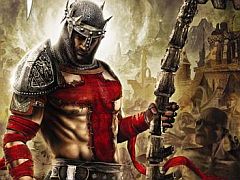
/https://oimg.videogamer.com/images/11ef/dantes_inferno_11.jpg)
/https://oimg.videogamer.com/images/b20e/dantes_inferno_10.jpg)
/https://oimg.videogamer.com/images/45f1/dantes_inferno_9.jpg)
/https://oimg.videogamer.com/images/6eeb/dantes_inferno_8.jpg)

